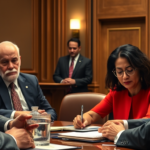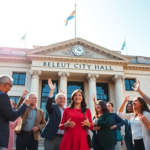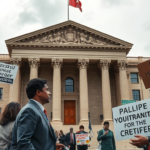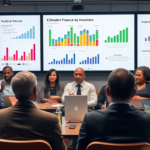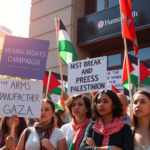Rob Winn: Championing Equity in Cancer Care at AONN+ Annual Meeting
In a significant step toward tackling disparities in cancer care, Dr. Rob Winn, the director of the VCU Massey Comprehensive Cancer Center, has emphasized the power of equity at the recent AONN+ Annual Meeting. Held in New Orleans, the gathering brought together over 20 advocates dedicated to addressing and reducing inequities in cancer treatment and support. This effort is part of a broader movement to transform the landscape of oncology and ensure fair access to care for all.
Championing Equity in Cancer Care
Dr. Rob Winn’s participation at the AONN+ Annual Meeting highlights ongoing efforts to create an equitable cancer care environment across the United States. The Alliance for Equity in Cancer Care, of which Winn is a prominent figure, made a compelling case for collaborative action among healthcare stakeholders. “This is what collective impact looks like,” emphasized Winn in a post shared on LinkedIn, commending the diverse group of navigators, social workers, administrators, and evaluators who attended the meeting.
The impetus for this initiative, as spelled out by Dr. Winn and his colleagues, is to dismantle barriers that traditionally underserved communities face in accessing cancer treatment. The meeting underscored the importance of visionary leadership, particularly acknowledging Marcie S. Wright for her role in advancing equity within the oncology field.
A Local Lens: Impact on the Community
For residents in communities like those in the Rio Grande Valley, where access to comprehensive cancer care can be limited, initiatives championed by Dr. Winn are vital. By prioritizing equity, such efforts can lead to better health outcomes and improved access to necessary resources.
Dr. Angelina Rivera, a local oncology specialist, sees the movement as transformative. “I’ve seen firsthand how disparities in care affect patients. Ensuring everyone, regardless of their background, receives the care they need is essential for healthier communities,” she said.
Relating to Previous Challenges
In recent years, the RGV and other similar regions have struggled with healthcare access issues, including in cancer care. Differences in socioeconomic and geographical factors contribute to these ongoing disparities, a key aspect that Dr. Winn’s advocacy aims to address.
Historically, local health systems have been positioned at the crossroads of providing adequate care while grappling with resource constraints. The insights from the AONN+ meeting serve as a reminder of ongoing advocacy for change to support vulnerable populations in the Valley and beyond.
Future Implications for Cancer Care
The takeaway from Dr. Winn’s presentation at the AONN+ meeting reflects a broader shift in the healthcare landscape, one that emphasizes inclusive practices and community support as cornerstones for effective cancer care.
For the future, these discussions could translate into meaningful policy changes, fostering partnerships between healthcare providers, policymakers, and the community to better address the unique needs of cancer patients. By promoting equity, the healthcare system becomes not just a provider but a partner in achieving better health outcomes for all.
Different Perspectives
While the focus on equity receives widespread support, it also faces challenges in balancing implementation with resource availability. Critics may question how initiatives will be funded and sustained in regions already facing budgetary constraints.
Dr. Samuel Thompson, a healthcare policy analyst, notes the importance of a balanced approach. “Such equity-driven initiatives need sustainable frameworks to succeed. It’s crucial that stakeholders engage in meaningful dialogues to lay down practical, achievable goals,” he stated.
Resources and Engagement for the Local Community
For those eager to learn more or participate in ongoing dialogues about cancer care equity, resources have been made available through platforms like OncoDaily. The website offers comprehensive tools such as directories of oncologists and upcoming events that facilitate knowledge-sharing and engagement across affiliated communities.
Local residents can also stay informed through OncoDaily’s various media channels, which ensure that individuals remain updated on developments in oncology. By participating in upcoming events and utilizing the platform’s myriad resources, community members can play an active role in shaping the future of cancer care.
In conclusion, Dr. Rob Winn’s influential presence at the AONN+ meeting and his focus on equity signals an important movement within oncology. By fostering inclusivity and collaboration across the board, such efforts promise a future where cancer care is accessible for all, benefiting communities like the Rio Grande Valley while setting a precedent for nationwide change.


